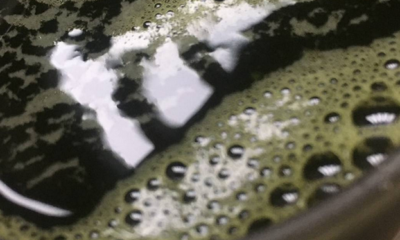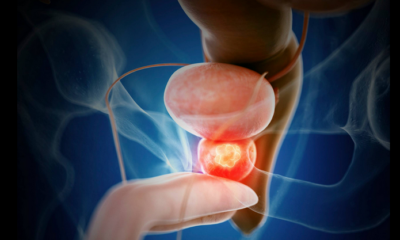Drinking water is a simple yet essential part of daily life, but both scientific research and Islamic teachings suggest that the way we drink water matters more than we might think. In Islam, drinking water while sitting is recommended as an act of following the Prophet Muhammad (peace be upon him). Health studies also reveal that sitting while drinking can have physical benefits, supporting digestion, joint health, and overall well-being. This article explores the reasons behind this practice from both Islamic and scientific perspectives, showing how faith and health are often beautifully aligned......Read Full Article>>
Islamic Etiquette on Drinking Water: The Wisdom of Sitting
In Islam, the Prophet Muhammad provided guidance on various aspects of life, including how to perform simple acts mindfully and respectfully. Drinking water is no exception. According to the Hadith (sayings of the Prophet), Muslims are encouraged to drink while sitting. This practice, known as sunnah, reflects the actions and teachings of the Prophet.
1. The Sunnah of Drinking While Sitting
The Prophet Muhammad advised his followers to sit while drinking, which is considered a sunnah or recommended practice in Islam. Anas ibn Malik reported that the Prophet said, “None of you should drink while standing; if anyone forgets, he should vomit” (Sahih Muslim 2026). Although this may sound strict, scholars agree that the guidance emphasizes the importance of drinking mindfully, honoring the body, and adhering to Islamic manners (adab).
Following the Prophet’s example, or sunnah is more than just a physical act. It is seen as a way to align everyday actions with the teachings of Islam, offering spiritual rewards and a greater sense of purpose in daily life.
2. Permissible Exceptions to Standing
While sitting is preferred, standing to drink water is not strictly forbidden (haram). There are occasions when the Prophet drank while standing, indicating that there are exceptions to the rule. For example, Ibn Abbas reported that the Prophet drank Zamzam water while standing (Sahih Bukhari 5617). Scholars interpret this to mean that while sitting is encouraged, standing is permissible in situations where sitting may be inconvenient or impractical. Islam encourages ease and flexibility, recognizing that rigid rules are not always practical in our daily lives.
3. Health Benefits in the Sitting
Some Islamic scholars believe there are practical health benefits to sitting while drinking, aside from the spiritual reward of following sunnah. Health studies support this view, showing that drinking in a relaxed, seated position can improve digestion, reduce strain on organs, and promote mindful hydration. Islamic teachings often include guidance that promotes physical and spiritual well-being, and this etiquette is no exception.
Scientific Perspective: Health Risks of Drinking Water While Standing
Modern health research adds a new layer of understanding to the Islamic recommendation of sitting while drinking. According to health experts, drinking water while standing can have negative effects on the body due to the stress it places on our tissues, organs, and fluid balance. Here are some of the key health reasons why standing to drink might not be the best approach:
1. Digestive Issues
One of the most immediate effects of drinking water while standing is its impact on digestion. When we drink standing up, water moves through the digestive tract more quickly and hits the stomach with greater force. This can lead to tension in the stomach muscles and disrupts the natural balance of fluids required for effective digestion. Ayurveda, an ancient Indian system of medicine, suggests that drinking in a relaxed state helps the body absorb and utilize fluids better. By contrast, drinking while standing can cause indigestion and even lead to toxin buildup over time.
2. Increased Risk of Joint Pain and Arthritis
Standing while drinking water can also have long-term effects on joint health. Rapid water intake while standing can disrupt the body’s fluid balance, sometimes leading to fluid accumulation in the joints. Over time, this may increase the risk of joint pain or arthritis, especially in those with a family history of joint issues. When fluid builds up in the joints, it can lead to inflammation and discomfort, a risk that can be reduced by sitting down and allowing water to flow through the system in a steady, controlled manner.
3. Respiratory and Cardiovascular Concerns
Drinking water while standing can also impact the respiratory and cardiovascular systems. In a standing position, water flows too quickly through the body, which may prevent essential nutrients and oxygen from being absorbed effectively. The liver and digestive system may also struggle to process nutrients at this rapid pace, leading to possible disruptions in oxygen levels. For proper hydration, a calm and seated position is advised, allowing water to circulate at a slower rate and giving the body time to process nutrients essential for lung and heart function.
4. Kidney Strain and Urinary Issues
The kidneys are most effective when the body is in a relaxed state, as this allows for better filtration of toxins. Drinking water while standing sends fluid through the body too quickly, sometimes reaching the bladder before the kidneys have fully filtered it. Over time, this can strain the kidneys and increase the risk of urinary tract issues as unfiltered water passes into the bladder. By sitting and drinking slowly, we allow the kidneys to filter impurities more thoroughly, promoting better urinary health and reducing strain on these essential organs.
The Right Way to Drink Water: Sit and Relax
To get the most out of each sip, experts recommend sitting down in a relaxed position with a straight back. This position encourages better posture and allows the digestive system to operate smoothly. Drinking slowly while seated helps ensure a controlled flow, allowing water to hydrate the body gradually and reach vital organs more effectively.
In Islamic teachings, sitting while drinking also fosters mindfulness and gratitude, which is a central principle in Islam. The simple act of sitting encourages a thoughtful approach to hydration, turning each sip into a moment of reflection and appreciation for the blessings of water.
Conclusion: How Faith and Science Align in Daily Practice
Both Islamic guidance and scientific research underscore the benefits of drinking water while sitting. In Islam, drinking while seated follows the sunnah of the Prophet, providing spiritual benefits and promoting mindful living. Health studies reveal that sitting while drinking also offers physical benefits, supporting digestion, joint health, and kidney function, while reducing the strain on various organs.
By embracing the simple yet profound habit of sitting while drinking, we can enhance our well-being and connect with a timeless wisdom that unites faith and health. Small habits can have significant impacts, and in this case, the choice to drink water while seated brings physical, spiritual, and mental rewards.
Health
Avoid Eating This 4 Foods If You Don’t Want To Fall Victim of Asthma

While asthma is largely influenced by genetics and environmental factors, diet can also play a significant role in triggering asthma symptoms. Certain foods, when consumed regularly, may increase inflammation in the airways or promote allergic reactions, which can worsen asthma symptoms. Here are four common foods that can potentially trigger asthma if eaten frequently:....Read Full Article>>
Processed Foods And Preservatives
Processed foods, including packaged snacks, fast food, and certain ready- made meals, often contain preservatives like sulfites, which are known to trigger asthma symptoms in sensitive individuals. Sulfites are commonly found in dried fruits, wine, and processed potato products. These chemicals can cause inflammation in the respiratory tract, making it harder to breathe and potentially exacerbating asthma symptoms. Regular consumption of processed foods may also increase levels of inflammation in the body, which could worsen asthma symptoms over time.
Dairy Products
Dairy products like milk, cheese, and yogurt are common in many diets, but they can cause issues for some asthma sufferers. Although not every asthmatic person is sensitive to dairy, it can increase mucus production in certain individuals, potentially worsening asthma symptoms. For some people, dairy allergies or lactose intolerance may also contribute to inflammation and mucus buildup, leading to restricted airways and difficulty breathing. Limiting dairy intake or opting for dairy alternatives, such as almond or soy milk, may help reduce the risk of asthma flare- ups.
Fried And Fatty Foods
Fried and fatty foods, such as French fries, burgers, and fried chicken, are high in unhealthy fats that can promote inflammation in the body. For asthma patients, inflammation can increase the likelihood of respiratory issues and trigger asthma attacks. Regularly consuming foods high in unhealthy fats may also contribute to weight gain, which can exacerbate asthma symptoms by putting additional pressure on the lungs. Choosing healthier fats, like those found in olive oil, avocados, and nuts, can be beneficial for asthma management.
Refined Sugar And Sugary Beverages
In conclusion, while food may not be the primary cause of asthma, certain dietary choices can influence the frequency and severity of asthma symptoms. Avoiding processed foods, reducing dairy and unhealthy fats, and limiting sugar intake can help some asthma patients manage their symptoms more effectively. For those with asthma, it’ s beneficial to maintain a diet rich in anti- inflammatory foods like fruits, vegetables, and whole grains.
Health
Key Advantages Of Consuming Raw Yolk Egg

1. Nutrient-Rich Profile: Egg yolks are packed with essential nutrients that contribute to overall health. They are a rich source of vitamins A, D, E, and K, as well as B vitamins such as B12, riboflavin, and folate. These vitamins play crucial roles in maintaining healthy vision, supporting immune function, promoting bone health, and aiding in energy metabolism......Read Full Article>>
Additionally, egg yolks are an excellent source of healthy fats, including omega-3 fatty acids, which are important for brain health and reducing inflammation. By consuming raw egg yolks, you can harness these nutrients without losing any of their benefits through cooking.
2. High-Quality Protein
Raw egg yolks contain high-quality protein that is easily digestible. Protein is essential for building and repairing tissues, supporting muscle growth, and maintaining a healthy metabolism. While egg whites are often celebrated for their protein content, the yolks also contribute significantly to your daily protein intake. For those looking to increase their protein consumption—such as athletes or those engaging in strength training—raw egg yolks can be a convenient and effective addition to a protein-rich diet.
3. Healthy Fats and Cholesterol
Egg yolks are a source of healthy fats, including monounsaturated and polyunsaturated fats, which are beneficial for heart health. Contrary to past beliefs that dietary cholesterol directly affects blood cholesterol levels, recent studies have shown that for most people, consuming moderate amounts of cholesterol does not significantly impact overall cholesterol levels. In fact, the cholesterol found in egg yolks can help support hormone production and cell membrane integrity. By incorporating raw egg yolks into your diet, you can enjoy these healthy fats and their associated benefits.
4. Convenience and Versatility
Raw egg yolks can be easily incorporated into a variety of dishes. They can be added to smoothies, salad dressings, or sauces for a creamy texture and nutritional boost. For those who are cautious about cooking eggs, consuming them raw may be a more appealing option, providing a unique flavor without the need for heat. This versatility makes it easy to include raw egg yolks in your daily routine.
Precautions
While there are benefits to consuming raw egg yolks, it’s important to consider potential risks. Raw eggs can carry the risk of salmonella, a bacteria that can cause food poisoning. To mitigate this risk, it’s advisable to use pasteurized eggs, which have been heat-treated to kill harmful bacteria without cooking the egg. Additionally, individuals with compromised immune systems, pregnant women, and young children should avoid consuming raw eggs altogether.
Conclusion
Incorporating raw egg yolks into your diet can offer several nutritional benefits, including a rich source of vitamins, healthy fats, and high-quality protein. However, it’s essential to take precautions to minimize the risk of foodborne illness. By choosing pasteurized eggs and using raw yolks in a safe manner, you can enjoy the potential health benefits while still prioritizing food safety. If you’re considering adding raw egg yolks to your diet, start slowly and consult with a healthcare provider or nutritionist to ensure it fits into your overall dietarygoals and health needs.
Health
4 Nutritious Sugar-Free Foods to Regularly Keep Your Health in Check

The Sugar-Free Diet restricts or eliminates simple carbohydrates and added sugar from your diet. To begin, eliminating added sugar from your diet is a life-changing and healthful decision. According to Healthline, even a 20% reduction in sugar consumption might save money on medical costs while also preventing many people from dying young, contracting diseases, or becoming handicapped.....Read Full Article>>
The majority of people are aware of sugar’s potential hazards and try to restrict their daily sugar intake as a result, but many fail.
There are many tasty sugar-free dishes to choose from. Here are the examples of such Foods:
1. Eggs: Diabetics can benefit from eggs since they can help them maintain their blood sugar levels throughout the day. There isn’t a single gram of sugar in it. In a variety of ways, eating eggs regularly can lower your risk of heart disease.
2. Fish: Like, Salmon, sardines, herring, and mackerel, are low in sugar and high in omega-3 fatty acids, which are beneficial to your heart. Because diabetics have a higher risk of heart disease and stroke, they should make sure they get enough of these fats every day. Consumption of fatty fish has been shown in studies to help manage blood sugar levels.
3. Beans: Beans, peas, and legumes are high in carbs but low in natural sugars, and there are no added sugars in them. Beans are a relatively inexpensive, nutrient-dense, and versatile food. Beans are legumes that are high in B vitamins, fiber, and minerals.
4. Vegetables: According to the Health Experts, Sugar content is minimal in all vegetables. Natural sugars are higher in white potatoes, sweet potatoes, and carrots than in other starchy vegetables. A sugar-free diet includes all veggies. Make sure canned vegetables don’t have any added sugars by reading the labels. Balanced, fearless journalism driven by data comes at huge financial costs. As a media platform, we hold leadership accountable and will not trade the right to press freedom and free speech for a piece of cake.
-

 Latest News2 weeks ago
Latest News2 weeks agoBREAKING: Journalist Who Exposed Army Chief Lagbaja’s Death In Serious Trouble As Military Reportedly Issues Unexpected Order
-

 Latest News4 weeks ago
Latest News4 weeks agoSUNDAY Turns BLOODY As Simon Ekpa’s Boys Reportedly Slaughter Dozens Of Soldiers; SEE Details
-

 Health1 month ago
Health1 month agoBitter Leaf Water is Not For You, Should Stop Drinking If You Belong to These Category
-

 Health1 month ago
Health1 month agoAvoid Prostate Cancer It Suddenly Kills, Stop Eating These 4 Foods In Excess
-

 Latest News4 weeks ago
Latest News4 weeks agoMohbad’s Wife Is PREGNANT? – Late Singer Wife Finally Breaks Silence On Viral Report, Here’s What She Said
-

 Latest News4 weeks ago
Latest News4 weeks agoDrama: “From grace to bush” – Netizens react to ‘Happy boys’ applying for 9-5 jobs (VIDEO)
-

 Latest News2 weeks ago
Latest News2 weeks agoWARNING! ! Shocking Detail: Do You Have MTN Line? They May Shut Down Soon According To MTN CEO Karl Toriola
-

 Health4 weeks ago
Health4 weeks ago6 Health Conditions That Chanca Piedra Leaf Can Help Treat

